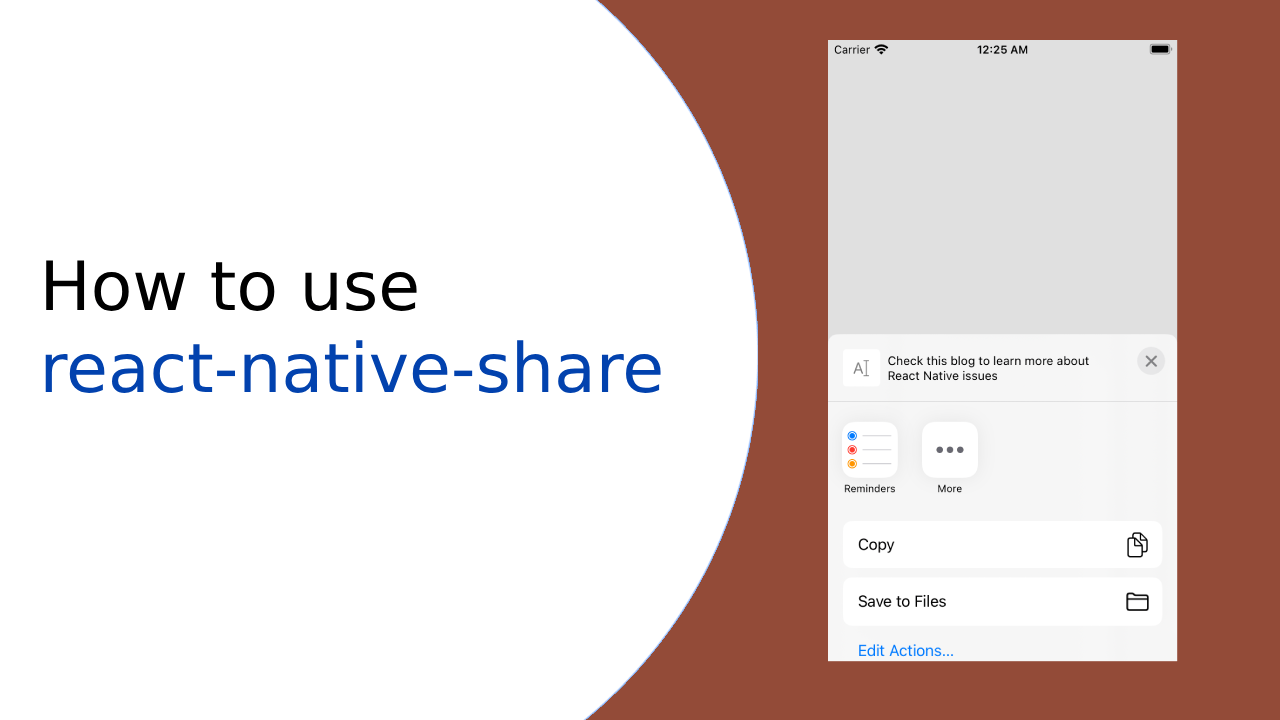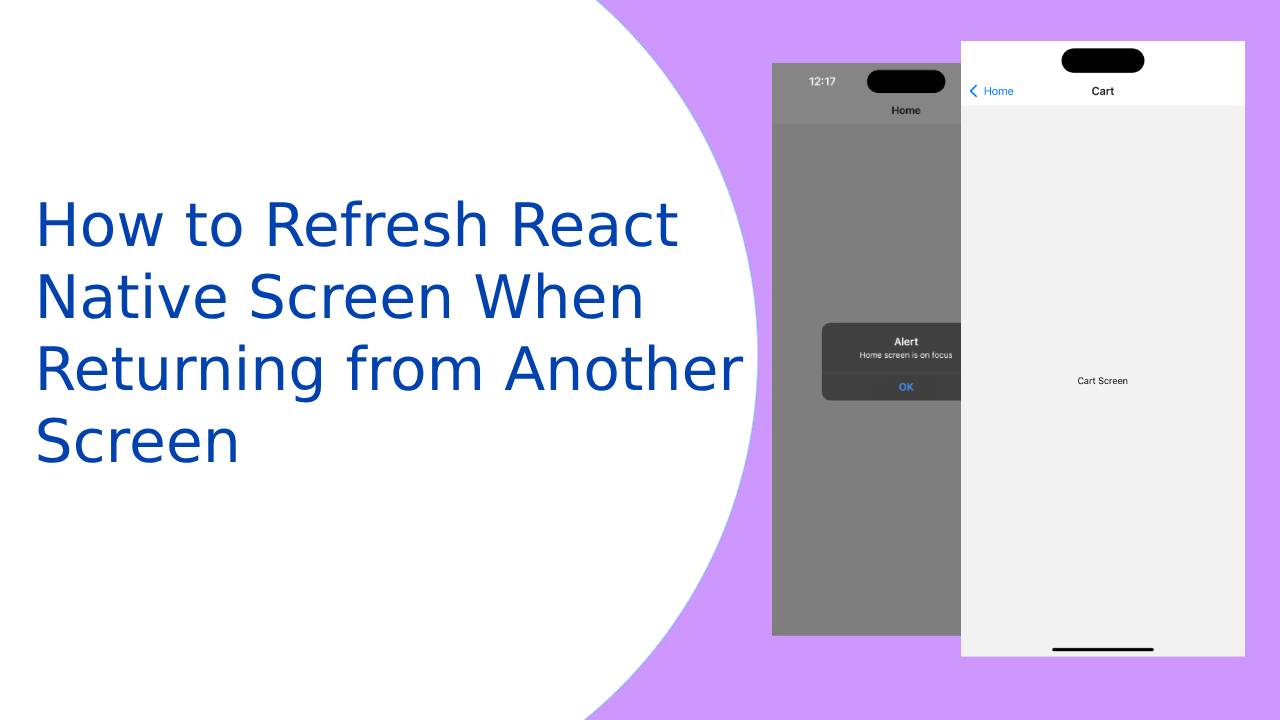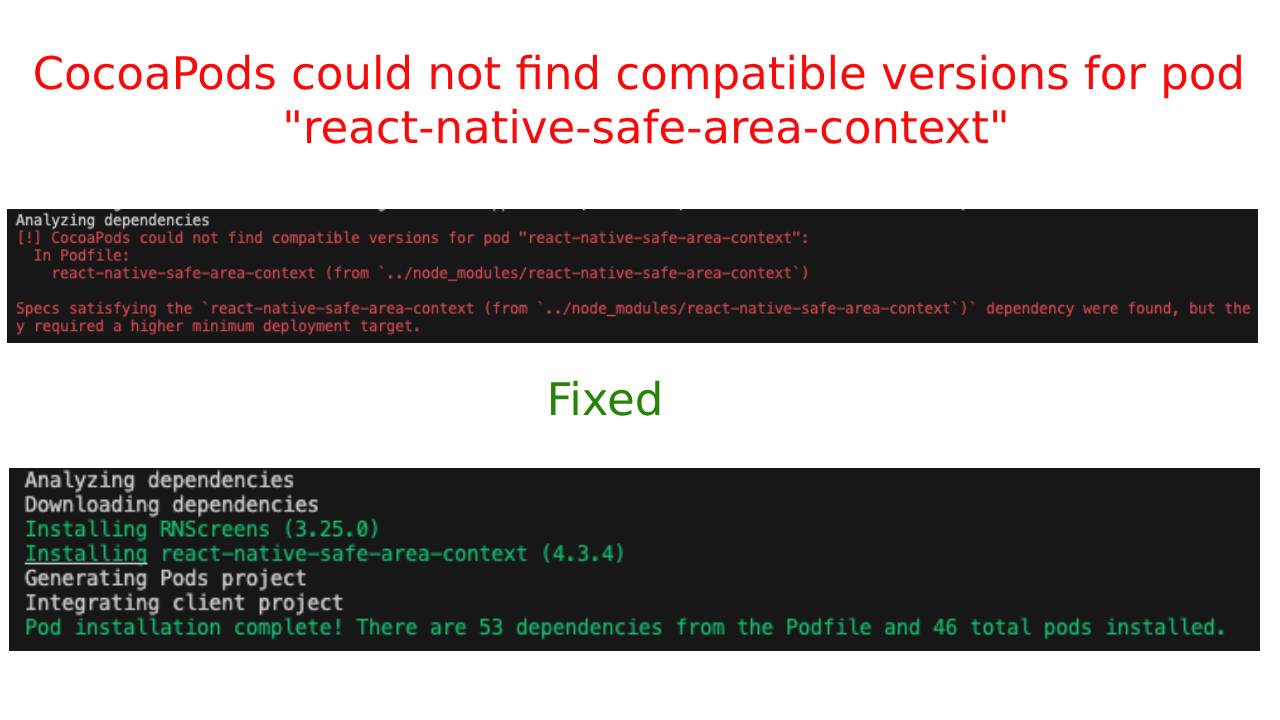Call native activity methods from react-native
To call native activity from react-native, first I am considering that our react-native project has successfully integrated into existing Android studio project if not then read my previous articles on
How to setup react-native step by step Click here
How to integrate react-native in existing android app Click here
Before moving forward I consider that you complete react-native setup and integration in existing native android app, and now to need to call the native android method from react-native to do this
We have use react-native
Native Modules
Create native module
This guide will use one method, let’s say we would like to call this method from JavaScript
Create a call OpenAndroid.java and extends this call with ReactContextBaseJavaModule
import android.widget.Toast;
import com.facebook.react.bridge.NativeModule;
import com.facebook.react.bridge.ReactApplicationContext;
import com.facebook.react.bridge.ReactContext;
import com.facebook.react.bridge.ReactContextBaseJavaModule;
import com.facebook.react.bridge.ReactMethod;
import java.util.Map;
import java.util.HashMap;
public class OpenAndroid extends ReactContextBaseJavaModule {
public ToastModule(ReactApplicationContext reactContext) {
super(reactContext);
}
}
ReactContextBaseJavaModule Require the method call getName the purpose of this method is to return string name in javaScript, you can access method by calling React.NativeModules.NativeCalls
@Override
public String getName() {
return "NativeCalls";
}
We need to annotate the method with @ReactMethod to expose this method in JavaScript, the return type of this method is always Void and the React-native bridge is asynchronous
@ReactMethod
public void nextScreen(String message) {
Intent intent = new Intent(this,NextScreenActivity.class);
startActivity(intent);
}
We can pass following argument type from native module
Float -> number String -> String Boolean -> bool Integer -> number Double -> number Callback -> function ReadableMap -> Object ReadableArray-> Array
Register the Module
We have to register this module in java code, if module not registered then it will not available in JavaScript to do this create one class name OpenAndroidPackage.java and implement it with React-Package as follows
import com.facebook.react.ReactPackage;
import com.facebook.react.bridge.NativeModule;
import com.facebook.react.bridge.ReactApplicationContext;
import com.facebook.react.uimanager.ViewManager;
import java.util.ArrayList;
import java.util.Collections;
import java.util.List;
public class OpenAndroidPackage implements ReactPackage {
@Override
public List<ViewManager> createViewManagers(ReactApplicationContext reactContext) {
return Collections.emptyList();
}
@Override
public List<NativeModule> createNativeModules(ReactApplicationContext reactContext) {
List<NativeModule> modules = new ArrayList<>();
modules.add(new OpenAndroid(reactContext));
return modules;
}
}
Now, our native module created and the package is registered,
we need to pass this registered package to react-native project through the getPackage method of the MainApplication.java
you will get this file at the following path android/app/src/main/java/com/yourAppName/MainApplication.java
Or if you are open react-native project from some other activity like below then you want to pass our package like below
import android.support.v7.app.AppCompatActivity;
import android.os.Bundle;
import android.view.KeyEvent;
import com.facebook.react.ReactInstanceManager;
import com.facebook.react.ReactRootView;
import com.facebook.react.common.LifecycleState;
import com.facebook.react.modules.core.DefaultHardwareBackBtnHandler;
import com.facebook.react.shell.MainReactPackage;
public class ReactActivity extends AppCompatActivity implements DefaultHardwareBackBtnHandler {
private ReactRootView mReactRootView;
private ReactInstanceManager mReactInstanceManager;
@Override
protected void onCreate(Bundle savedInstanceState) {
super.onCreate(savedInstanceState);
mReactRootView = new ReactRootView(this);
mReactInstanceManager = ReactInstanceManager.builder()
.setApplication(getApplication())
.setBundleAssetName("index.android.bundle")
.setJSMainModulePath("index")
.addPackage(new MainReactPackage())
.addPackage(new OpenAndroidPackage()) <-- like this
.setUseDeveloperSupport(BuildConfig.DEBUG)
.setInitialLifecycleState(LifecycleState.RESUMED)
.build();
mReactRootView.startReactApplication(mReactInstanceManager, "NativeApp", null)
setContentView(mReactRootView);
}
@Override
public void invokeDefaultOnBackPressed() {
super.onBackPressed();
}
@Override
protected void onPause() {
super.onPause();
if (mReactInstanceManager != null) {
mReactInstanceManager.onHostPause(this);
}
}
@Override
protected void onResume() {
super.onResume();
if (mReactInstanceManager != null) {
mReactInstanceManager.onHostResume(this, this);
}
}
@Override
protected void onDestroy() {
super.onDestroy();
if (mReactInstanceManager != null) {
mReactInstanceManager.onHostDestroy(this);
}
}
@Override
public void onBackPressed() {
if (mReactInstanceManager != null) {
mReactInstanceManager.onBackPressed();
} else {
super.onBackPressed();
}
}
@Override
public boolean onKeyUp(int keyCode, KeyEvent event) {
if (keyCode == KeyEvent.KEYCODE_MENU && mReactInstanceManager != null) {
mReactInstanceManager.showDevOptionsDialog();
return true;
}
return super.onKeyUp(keyCode, event);
}
}
Use native module in JavaScript
To access native module in JavaScript, we need to wrap native module with javaScript module to do this
create JS module file in the react-native project, ex. create NativeCalls.js and add the following line in it
import {NativeModules} from 'react-native';
module.exports = NativeModules.NativeCalls;
Then import this NativeCalls module where you want to use like as below
import NativeCalls from './NativeCalls';
and call the method like
NativeCalls.nextScreen('Awesome');
That set, you can use any existing android module using this method, just create module package–> Register that module package –> pass this package through the .addPackage method and done
Thank you 🙂 enjoy coding




After all, what a great site and informative posts, I will upload inbound link – bookmark this web site? Regards, Reader.
Thanks a lot 🙂
Excellent way of describing, and fastidious piece of writing to take facts on the topic of my presentation topic, which i am going to convey in institution of higher education.|
Thank you
Hey very interesting blog!|
Thank you
Very descriptive post, I enjoyed that a lot. Will there be a part 2?|
Thank you
Awesome! Its really amazing piece of writing, I have got much clear idea on the topic of from this post.|
Thanks 😊
If some one wishes to be updated with latest technologies then he must be pay a visit this website and be up to date every day.|
Thanks stay connected
Appreciate this post. Let me try it out.|
Sure
Great delivery. Solid arguments. Keep up the good work.|
That’s great👍🏻
Saved as a favorite!, I love your web site!
Thank you 😊
Magnificent site. Lots of useful info here. I am sending it to a few pals ans also sharing in delicious. And of course, thanks on your effort!|
Thank you 🙂
I have read so many articles or reviews about the blogger lovers but this post is really a good piece of writing, keep it up.|
Thank you 🙂
Wow that was strange. I just wrote an very long comment but after I clicked submit my comment didn’t show up. Grrrr… well I’m not writing all that over again. Anyways, just wanted to say fantastic blog!|
Thank you 🙂
Hi! Would you mind if I share your blog with my twitter group? There’s a lot of folks that I think would really appreciate your content. Please let me know. Many thanks|
Yes, thanks 🙂
Yes, thanks 🙂
Wow! In the end I got a web site from where I be capable of truly get useful data regarding my study and knowledge.|
Thank you 🙂
bookmarked!!, I like your web site!|
Thank you 🙂
Excellent web site. A lot of helpful information here. I am sending it to some friends ans also sharing in delicious. And certainly, thank you for your effort!|
Thank you 🙂